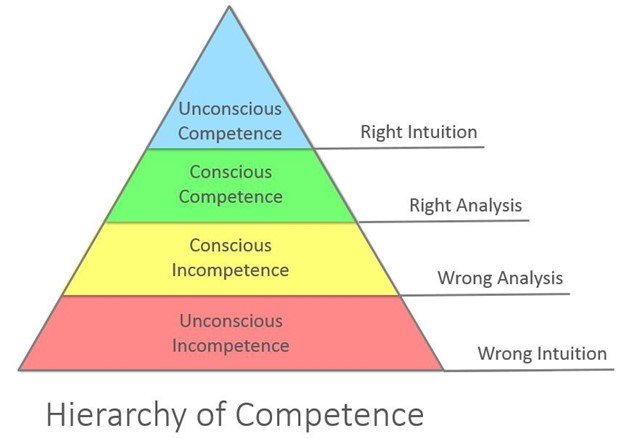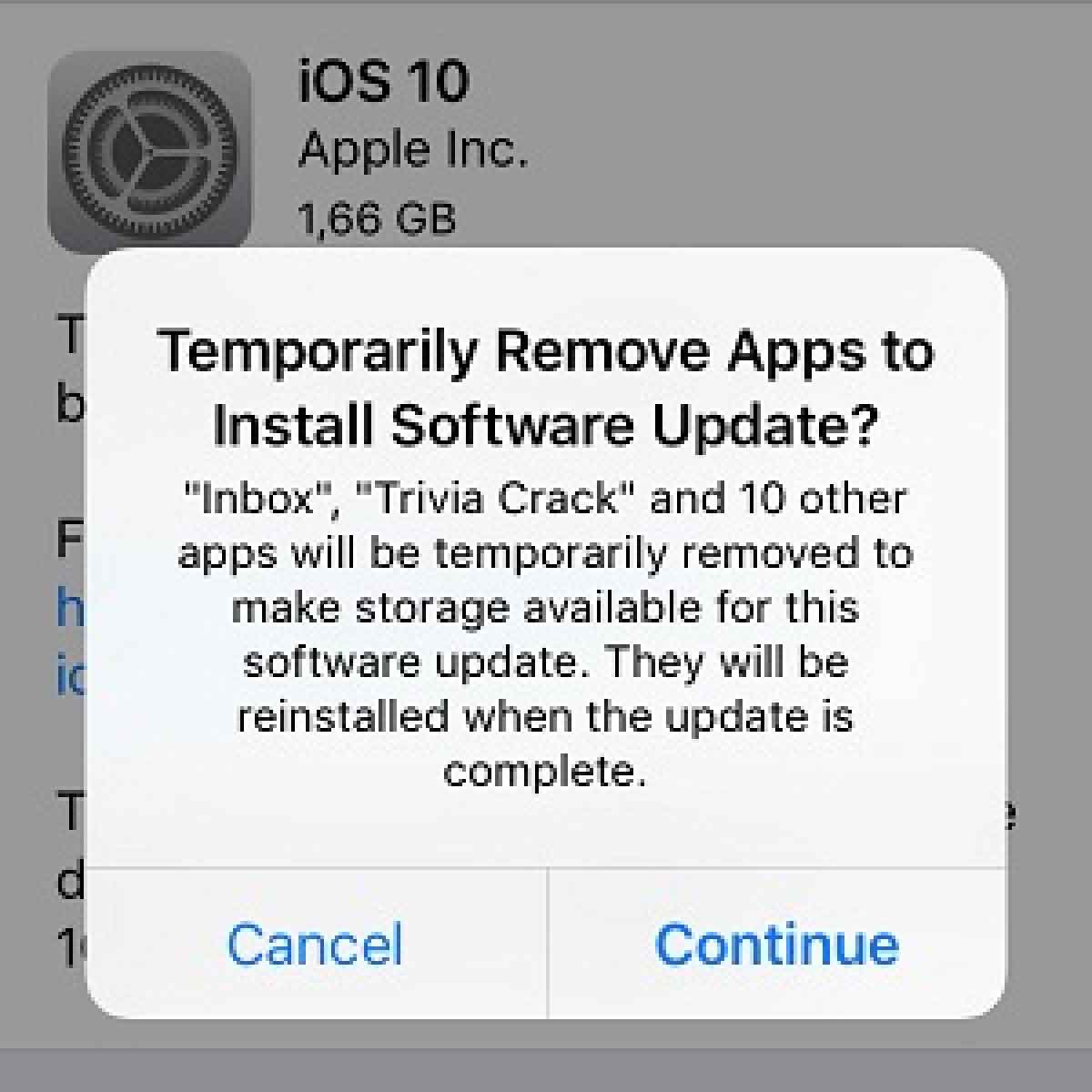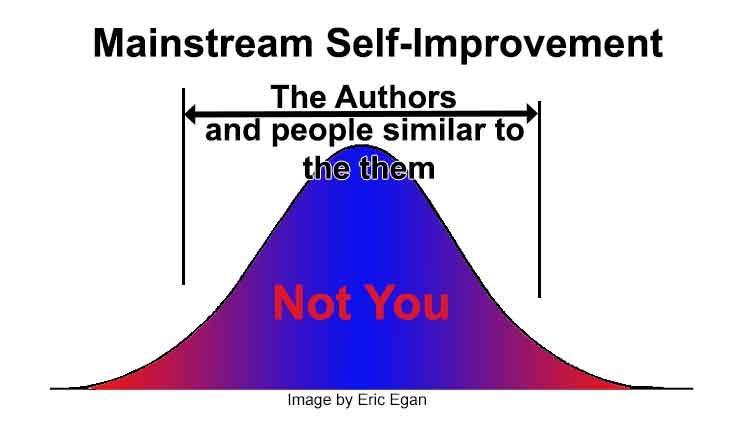Why You Can’t Get There From Here
It was not their fault.
In the late 1990’s I taught a free computer class for first-time computer users at the city’s recreation center. Everyone was sitting in front of a Windows 95 PC as I explained how a mouse works, what the buttons were for, etc. Then I asked them to click the little “Start” button in the bottom left of their monitor with the mouse. Most did what you would expect.
However, some students picked up their mouse and tapped it against the monitor’s glass over the Start button. Just like I instructed them to, right? Don’t laugh yet.
So, I started over and made a more detailed demonstration of how the mouse works on the mouse pad, controls the pointer on the screen, etc. Everyone nodded like, “Oh, Now I get it.” Again, most got it.
Progress, they all left the mouse on the mouse pad this time. But some proceeded to “drive” the mouse around the mouse pad like you would a little toy car turning on tiny streets. (Funny at first, but logical when you think about it if you ever played with Matchbox Cars).
When attempting to get the pointer to the “Start” button on their screen, they would turn the mouse until the front (where the cord is connected), pointed to the bottom left corner of the mouse pad, and proceeded to “drive” the mouse to the corner.
These were not stupid people. For some, it was the first time they sat at a computer. The first time they ever touched a mouse. Do you remember the first time you used a mouse? Probably not.
The problem was not them; it was me. I assumed too much. I had to redefine my definition of what a “first-time computer user” was and start over. I spent a little one-on-one time with a few students. The class went well, and eventually, all were mesmerized by playing solitaire on a computer for the first time.
One reason mainstream self-improvement is not working is you are probably not “mainstream.” Most of the gurus and authors do precisely what I did with my first-time computer users. They naturally assume too much about you. It is impossible not to.
The assumptions come from the competency gap between you and the self-improvement guru.
The Competency Gap.
As you know, competency is how well you can do something. But the four stages of competence (or learning) are much more interesting than that. You could also call it the four stages of installing something into your mind.
Unconscious incompetence
You are unaware you do not know how to do a task. (Like before you ever drove a car).
Conscious incompetence
You find out that you suck at a task. (The first time you tried anything, like driving a car).
Conscious competence
You can now perform the task well, but you must concentrate hard on doing it. (When you first started driving on your own after some Drivers Education training, working on remembering and doing the checklist…seatbelt….check the mirrors…blinker…).
Unconscious competence
You can perform the task without thinking about it. (Now you drive home after work and don’t even remember it).

You don’t know what you don’t know.
Before my first-time computer user class, the students were at the unconscious incompetence stage. The students were unaware that they did not know how to operate a mouse.
Well, guess what? Before the class, I, the “computer expert,” was at the unconscious incompetence stage too.
Sure, I had been using PCs for years. I was building computers and small business networks at the time. When asked to teach computers to new users, I said I would love to. No problem, or so I thought.
Although I did know everything a new computer user would need to know to start using a computer, I was unaware of what the students did not know. Ironically, I was “unconsciously incompetent” too because of my “unconscious competence” in basic computer skills.
In other words, I would tend to gloss over all the computer stuff I did without thinking.
This is how it is with mainstream self-improvement and you. The gurus can only include their deliberate actions. Or actions at the Conscious Incompetence and Conscious Competence level to attain their success.
However, they unintentionally leave out or gloss over the things they did naturally to achieve success. All the keys to success the self-improvement authors use with Unconscious Competence do not make it into the book.
The less you have in common with the author of the hot new personal improvement method, the wider the competency gap and the less your chances of achieving the results the author, and people similar to the author, achieved.
~~~~~
Stop skipping step one.
You are so focused on learning about success that you keep skipping over the prerequisite; unlearning failure first. Wouldn’t it be great to see a popup like the one below whenever you found a new self-improvement method?
Here you are, getting ready to read a great five-star book and “install” some positive apps from the book. Then on the first page, you see a popup listing all the negative apps you must uninstall for the book’s positive apps to work. Negative apps you did not even know you had.

Image from iphonetricks.org and edited by the author.
Unfortunately, we do not get insightful popups like this. But somehow, you still have to uninstall these negative apps to get to where the author is coming from.
How do you find these advanced negative apps you are using at the expert unconscious competence level? Some of your negative apps were installed before you could walk.
They are a threat like the Dementors in Harry Potter’s world but stealthier. The first step is to know what the threats are.
The Threats
The equivalent to your negative apps in the cybersecurity world is the dreaded “Advanced Persistent Threats” (APT).
“Advanced” because APTs are sophisticated and skillfully penetrate your security undetected. “Persistent” because APTs exist on a network (your mind) for a very long time before they are detected.
A “Threat” because they operate in the shadows and eventually will take or damage what they want (like keeping you where and how you are, destroying new ideas, etc.).
Or they lie in wait for the opportunity to do so. Your APTs are sophisticated threats to your plans for a new life and have been for a long time. So, how do you find your ATPs?
The Threat Hunter
I will spare you the part where I explain what a “Threat Hunter” is in the cybersecurity world and get to how you become one in your world. You have already completed step one in becoming a threat hunter; you now know APTs exist, and you have them. And you know they are lethal to your new ideas, dreams, and goals.
Once you find the first APT, it will get easier and easier to find more.
Let’s look at one commonly overlooked APT that may be why “you can’t get there from here.” The first one is a very simple concept but extremely difficult to accomplish.
Mission Impossible
This basic element of happiness or sorrow is one of the most powerful two-edged swords in the universe; forgiveness.
Forgiveness is often overlooked on the self-improvement journey. Or it may be intentionally skipped because forgiveness can be so difficult and painful.
But if you skip forgiveness, all your other self-improvement exercises will be busy work, with little to show for all your time and effort.
It is incredible how something so simple can seemingly turn the natural laws of the machines we live in against you.
Let’s skip over those natural laws for now and look at some studies that show forgiveness has many health benefits, including a longer, happier life.
According to The Johns Hopkins University:
“Studies have found that the act of forgiveness can reap huge rewards for your health, lowering the risk of heart attack; improving cholesterol levels and sleep; and reducing pain, blood pressure, and levels of anxiety, depression, and stress. And research points to an increase in the forgiveness-health connection as you age.”
(Forgiveness: Your Health Depends on It. n.d.).
According to the Mayo Clinic:
If you’re unforgiving, you might:
~Bring anger and bitterness into every relationship and new experience
~Become so wrapped up in the wrong that you can’t enjoy the present
~Become depressed or anxious
~Feel that your life lacks meaning or purpose, or that you’re at odds with your spiritual beliefs
~Lose valuable and enriching connectedness with others(Mayo Clinic Staff. n.d.).
Another groundbreaking study on pubmed.gov found forgiveness offers protection against mortality
Forgiveness may offer much hope in making human suffering better or more tolerable through reducing depression, hopelessness, and stress, but it may be its ability to build resistance and adjust your mind and body to find a relatively stable state of balance that offers protection against mortality.
(Toussaint LL, Owen AD, Cheadle A, 2012)
These studies and countless others provide science-based proof that forgiveness has positive physical and mental health benefits.
There is also science-based proof that there are many negative side effects to being unforgiving as well.
So, if you are not entirely on board (yet) with my mumbo-jumbo about the natural laws surrounding forgiveness, for now, try forgiveness for your physical and mental health.
You have studies that show it works. If you do practice forgiveness, in addition to what the studies show, the side benefits of the machine’s natural laws serving you will be a huge bonus.
You will be all the scientific evidence you will ever need.
There is a catch.
The only way for you to be forgiven completely is first to forgive. You need to work towards forgiving everyone and everything completely and continuously.
It is a package deal that works like this: “Forgiven” is on one pole of a magnet, and “Forgive” is on the other.
You can’t pick up one pole of the magnet without picking up the other. That is why as you become more forgiving, you are more forgiven.
How to forgive is a very personal, never-ending journey all on its own, far beyond one article, especially when it comes to forgiving yourself.
Now you have focus. If the forgiveness ATP fits you, rather than wasting more time and money by randomly picking something from the huge selection of awesome self-improvement topics and methods out there, you can focus your energy on learning the how-to for one subject; forgiveness.
Uninstalling failure.
How to find your unforgiveness ATPs and the steps for uninstalling them. Remember, ATPs are at the highest level, level Four: Unconscious Competence.
Use the four stages of competence like breadcrumbs to find your way back.
Uninstalling negative ATPs.
Unconscious competence
You are unforgiving, especially to yourself. You are automatically self-sabotaging yourself without even thinking about it. “I would forget my head if it wasn’t attached.” “You can’t do that; WTF were you thinking, dummy?”
Conscious incompetence
You realize you are unforgiving to yourself. You notice the negative BS you have been telling yourself but haven’t figured out how to stop it or turn it positive.
Conscious competence
You forgive yourself but must work at it.You catch the BS you are telling yourself and call out the BS for what it is. You had to go back home for your cell phone and observe your negative app berating you, “What an idiot, see! You would forget your head if it were not….wait a minute! That’s the negative BS I was told about in the awesome Medium article! 😉 I remember my phone way more than I forget it.” Then you tell yourself, “Good catch! I am getting a little better at this every day.”
Unconscious incompetence
You are forgiven. You are no longer good at automatically sabotaging yourself. You are no longer your own worst enemy.
Finding and uninstalling ATPs is like weeding a garden; the work never ends (especially if you do not pull the weeds out by the roots).
Now you can get there from here.
Now you can see that many mainstream self-improvement methods unintentionally start around chapter four.
You have to write your first few chapters on how you got to chapter four yourself. It will take some time, but once you do, you will discover; you CAN get there from here.
A little attitude test for you: As you grow, evolve, and learn about the natural laws of the machines we live in, rather than trying to do everything yourself (hopefully), you will learn that you have to “let” or “Allow” good things flow to you.
If you can learn to “allow,” good things will chase you down and find you in the most unexpected ways.
How ridiculous or logical this sounds to you right now indicates how far you must go to get to; allowing. The sillier it sounds, the farther you must go.
If staying out of the way and allowing something outside yourself to do all the hard work for you sounds ridiculous to you right now or sounds completely stupid, just skip over it for now, and learn forgiveness for the benefits the studies pointed out.
Check back now and then. I will post more articles about our other negative APTs as they come to me.
References
Forgiveness: Your Health Depends on It. (n.d.). The Johns Hopkins University. Retrieved September 3, 2021, from https://www.hopkinsmedicine.org/health/wellness-and-prevention/forgiveness-your-health-depends-on-it
Mayo Clinic Staff. (n.d.). Forgiveness: Letting go of grudges and bitterness. mayoclinic.org. Retrieved September 4, 2021, from https://www.mayoclinic.org/healthy-lifestyle/adult-health/in-depth/forgiveness/art-20047692
Toussaint LL, Owen AD, Cheadle A. Forgive to live: forgiveness, health, and longevity. J Behav Med. 2012 Aug;35(4):375–86. doi: 10.1007/s10865–011–9362–4. Epub 2011 Jun 25. PMID: 21706213.
Also, if you would like to contribute an article to The Science of Destiny, email me at [email protected].





